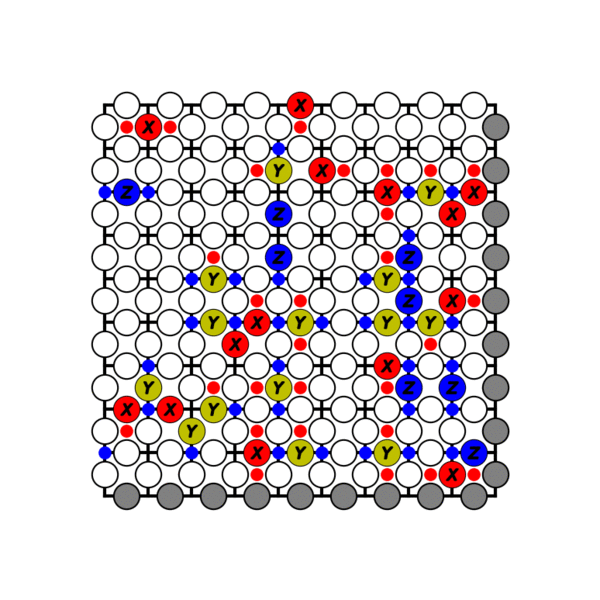Deep Q-learning decoder for depolarizing noise on the toric code
We present an AI-based decoding agent for quantum error correction of depolarizing noise on the toric code. The agent is trained using deep reinforcement learning (DRL), where an artificial neural network encodes the state-action Q-values of error-correcting $X$, $Y$, and $Z$ Pauli operations, occurring with probabilities $p_x$, $p_y$, and $p_z$, respectively. By learning to take advantage of the correlations between bit-flip and phase-flip errors, the decoder outperforms the minimum-weight-perfect-matching (MWPM) algorithm, achieving higher success rate and higher error threshold for depolarizing noise ($p_z = p_x = p_y$), for code distances $d\leq 9$. The decoder trained on depolarizing noise also has close to optimal performance for uncorrelated noise and provides functional but sub-optimal decoding for biased noise ($p_z \neq p_x = p_y$). We argue that the DRL-type decoder provides a promising framework for future practical error correction of topological codes, striking a balance between on-the-fly calculations, in the form of forward evaluation of a deep Q-network, and pre-training and information storage. The complete code, as well as ready-to-use decoders (pre-trained networks), can be found in the repository https://github.com/mats-granath/toric-RL-decoder.
PDF Abstract
